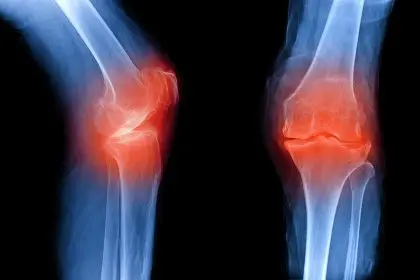Knees play a vital role in daily life, serving as the hinge that supports everything from walking and running to standing up and sitting down. When your knees are healthy, they often go unnoticed. However, as age, injury or disease takes its toll, the knee can become less reliable. For many people, knee replacement surgery becomes necessary when the joint no longer functions as it should. But how do you know when it’s time? This article explores the five key indicators that your knee may require replacement and why addressing these issues is crucial for maintaining a high quality of life.
Knee replacements are life-changing procedures for individuals suffering from chronic pain, limited mobility and diminished independence. When your knee no longer performs specific functions, it can affect not only your physical abilities but also your emotional well-being. Knowing when it’s time to seek help is essential for restoring the movement you may have lost over time.
1. You can no longer walk without pain
One of the first signs that knee replacement may be necessary is the inability to walk without pain. For some, the pain may start gradually, manifesting during longer walks or when climbing stairs. However, as the knee deteriorates, the pain can become constant, even occurring while sitting or lying down. When walking becomes painful to the point of avoiding everyday activities, it’s a red flag.
Chronic knee pain can severely impact your emotional and mental health, leaving you feeling frustrated, exhausted and helpless. This pain can also cause isolation — as individuals often withdraw from social activities to avoid discomfort. The emotional toll is just as significant as the physical, making it essential to address the underlying issue.
2. Your knee no longer supports you properly
Have you ever tried to stand up, only to feel like your knee is going to give out? This is a common sign of knee instability, and it can be alarming. Instability occurs when the knee joint can no longer bear the weight of the body due to weakened muscles, damaged cartilage or advanced arthritis. If your knee buckles or gives way frequently, it’s a clear indication that the joint is failing.
Feeling as though you can’t trust your body to support you can lead to fear and anxiety. This fear may keep you from engaging in activities you once enjoyed, such as walking in the park, dancing or playing with your grandchildren. It’s a reminder that your knee is no longer functioning as it should, and it may be time to consider a replacement.
3. Your range of motion is severely limited
Healthy knees allow you to bend, stretch and move freely without restriction. However, when the joint becomes stiff, you may notice a dramatic reduction in your range of motion. Simple tasks such as bending down to pick something up or climbing into a car can become challenging. In more severe cases, people with knee issues may have difficulty even sitting down or standing up from a chair.
The inability to move freely can be frustrating and limiting. Many people begin to feel a loss of independence as they rely on others for help with daily activities. This loss of autonomy can lead to emotional distress, making it even more important to address the underlying cause of the reduced mobility.
4. Your knee is constantly swollen and stiff
Chronic swelling and stiffness in the knee joint is another sign that it may be time for a replacement. While occasional swelling can result from overuse or minor injuries, persistent swelling that doesn’t improve with rest, ice or medication is a warning sign. This inflammation is often due to advanced arthritis — where the cartilage that cushions the knee has worn away — leading to painful bone-on-bone contact.
Constantly feeling like your knee is inflamed can be exhausting, both physically and mentally. The stiffness that accompanies swelling can make it difficult to get out of bed in the morning or move comfortably throughout the day. This persistent discomfort can wear you down emotionally, leading to feelings of frustration or even depression.
5. You can no longer perform daily activities
The final and perhaps most telling sign that knee replacement surgery may be necessary is the inability to perform basic daily activities. When even simple tasks such as walking to the mailbox, standing for short periods or getting dressed become painful or impossible, it’s time to consider your options. If your quality of life has dramatically decreased, it’s important to speak with a medical professional about knee replacement surgery.
Losing the ability to engage in routine activities can significantly impact your sense of self-worth and confidence. Many individuals feel a sense of loss, as their once-active lives have been replaced with immobility and pain. This emotional toll can be just as overwhelming as the physical limitations, making the decision for surgery a step toward reclaiming your life.
What happens during knee replacement surgery?
Knee replacement surgery — also known as knee arthroplasty — is a procedure where damaged parts of the knee joint are removed and replaced with artificial components. These prosthetic parts are made of metal, plastic or ceramic materials and are designed to replicate the function of a healthy knee. The surgery aims to reduce pain, restore function and improve the overall quality of life.
While the thought of surgery can be daunting, knee replacements are among the most successful and commonly performed procedures. Many patients report significant pain relief and improved mobility after recovery. Understanding the process and discussing your concerns with a health care provider can help ease any anxiety you may have about the surgery.
Recovery and life after knee replacement
Recovery from knee replacement surgery can take time, but with proper physical therapy and rehabilitation, most people regain a significant level of function. The recovery period varies for each individual, but many patients are able to resume normal activities within a few months.
After the initial healing phase, patients often experience improved mobility, reduced pain and a return to activities they once enjoyed. For many, knee replacement provides a new lease on life, allowing them to walk, exercise and participate in social activities without the burden of chronic pain.
Know when it’s time
Knee replacements become necessary when your knee no longer performs vital functions such as supporting your weight, moving freely or allowing you to walk without pain. When your knee reaches this point, the physical and emotional impact can be overwhelming. It’s important to recognize these signs and consult with a health care professional about your options. Knee replacement surgery can restore your quality of life, enabling you to regain your independence and move without pain.
If you’re experiencing any of the symptoms described, don’t ignore them. Early intervention can prevent further damage and improve your chances of a successful recovery. Addressing your knee health now means living a more active, pain-free life in the future.
This story was created using AI technology.
















